
Dédougou: The Cultural Heartbeat of Burkina Faso
Dédougou, a vibrant city in western Burkina Faso, is a hidden gem for tourists seeking an authentic African experience. Known for its rich cultural heritage, Dédougou is the capital of the Mouhoun Province and serves as a vital hub for the traditions and customs of the Bwa people. The city is famous for its warm hospitality and offers a unique blend of historical landmarks, colorful markets, and lively festivals. One of the highlights of visiting Dédougou is the biennial Festival International des Masques et des Arts (FESTIMA), an event that celebrates traditional Bwa masks and dances. This festival attracts visitors from all over the world, providing a rare opportunity to witness intricate mask performances and traditional music. The festival is a testament to the city's dedication to preserving its cultural heritage. The bustling markets of Dédougou are a vibrant reflection of the city's everyday life. Here, tourists can find a variety of local crafts, textiles, and delicious street food. The city's central market is a must-visit, offering a sensory overload of sights, sounds, and smells that truly capture the essence of Burkina Faso. For those interested in history, the Dédougou Museum provides an insightful look into the region's past, with exhibits showcasing traditional artifacts and local lore. Nature lovers will also find plenty to explore in and around Dédougou. The nearby Banzon Falls and the Black Volta River offer picturesque settings for a relaxing day trip. These natural attractions are perfect for picnics, bird watching, and enjoying the serene landscapes of western Burkina Faso.
Local tips in Dédougou
- Visit during FESTIMA: Plan your trip around the biennial Festival International des Masques et des Arts to experience the city's cultural richness.
- Learn basic French: While many locals speak indigenous languages, knowing some French will help you navigate the city more easily.
- Stay hydrated: The climate in Dédougou can be quite hot, so always carry water with you while exploring.
- Respect local customs: Be mindful of local traditions and dress modestly, especially when visiting religious sites or attending festivals.
- Try local cuisine: Don't miss out on tasting Dédougou's street food, especially dishes like tô and brochettes.
Dédougou: The Cultural Heartbeat of Burkina Faso
Dédougou, a vibrant city in western Burkina Faso, is a hidden gem for tourists seeking an authentic African experience. Known for its rich cultural heritage, Dédougou is the capital of the Mouhoun Province and serves as a vital hub for the traditions and customs of the Bwa people. The city is famous for its warm hospitality and offers a unique blend of historical landmarks, colorful markets, and lively festivals. One of the highlights of visiting Dédougou is the biennial Festival International des Masques et des Arts (FESTIMA), an event that celebrates traditional Bwa masks and dances. This festival attracts visitors from all over the world, providing a rare opportunity to witness intricate mask performances and traditional music. The festival is a testament to the city's dedication to preserving its cultural heritage. The bustling markets of Dédougou are a vibrant reflection of the city's everyday life. Here, tourists can find a variety of local crafts, textiles, and delicious street food. The city's central market is a must-visit, offering a sensory overload of sights, sounds, and smells that truly capture the essence of Burkina Faso. For those interested in history, the Dédougou Museum provides an insightful look into the region's past, with exhibits showcasing traditional artifacts and local lore. Nature lovers will also find plenty to explore in and around Dédougou. The nearby Banzon Falls and the Black Volta River offer picturesque settings for a relaxing day trip. These natural attractions are perfect for picnics, bird watching, and enjoying the serene landscapes of western Burkina Faso.
When is the best time to go to Dédougou?
Iconic landmarks you can’t miss
Parc Bangr Weogo
Discover Ouagadougou's green oasis: Parc Bangr Weogo, a blend of nature, culture, and history in the heart of the city.
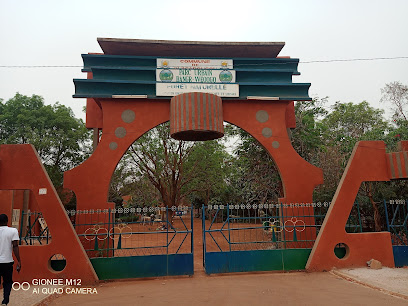
Maison du Peuple
Explore the vibrant art and culture of Burkina Faso at Maison du Peuple in Ouagadougou, a hub of creativity and community.
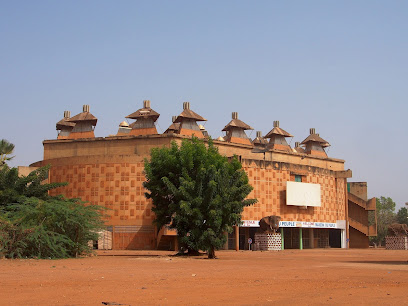
Ouagadougou Thomas Sankara International Airport
Discover the vibrant culture and stunning landscapes of Burkina Faso at Ouagadougou Thomas Sankara International Airport, your gateway to adventure.
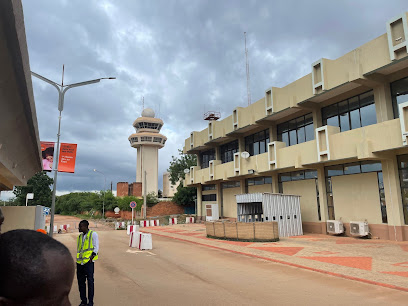
Ouagadougou Cathedral
Explore the architectural beauty and spiritual essence of Ouagadougou Cathedral, a stunning Romanesque landmark in the heart of Burkina Faso.
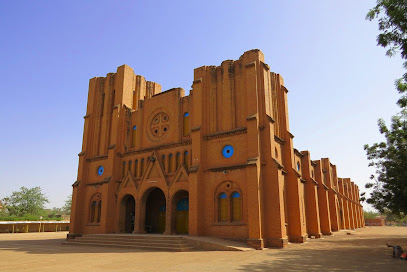
Monument of National Heroes
Discover the Monument of National Heroes in Ouagadougou, a tribute to Burkina Faso's legacy, embodying the nation's resilience and spirit.
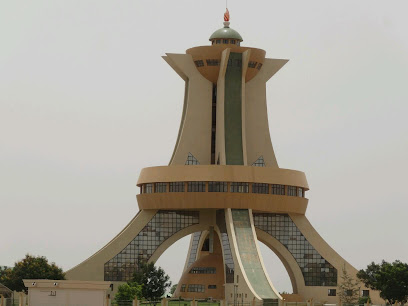
KB et frères
Discover the serene beauty and cultural significance of KB et Frères, a stunning mosque in Ouagadougou's Koulouba district, near the Grand Mosquée.
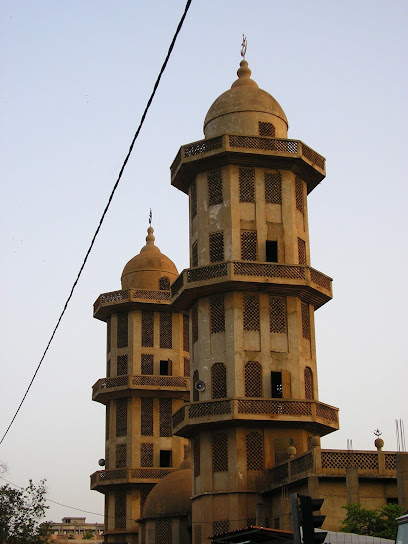
BIBI PARC
Explore BIBI PARC, Ouagadougou's enchanting amusement park, where fun rides and lush landscapes create unforgettable family experiences.
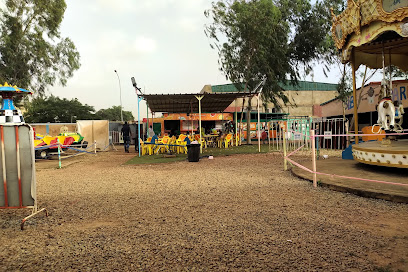
Faso Parc
Experience the thrill of Faso Parc, an exciting amusement park in Ouagadougou with rides, games, and fun for the entire family.
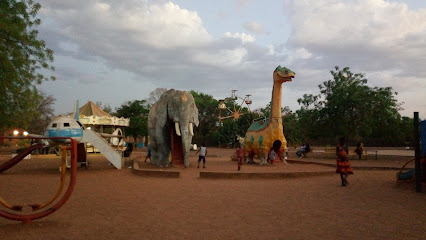
Maasmê Issouka - Palais Du Naaba D'Issouka
Discover royal history and Mossi traditions at the Palais Du Naaba D'Issouka in Koudougou, a unique cultural landmark in Burkina Faso.
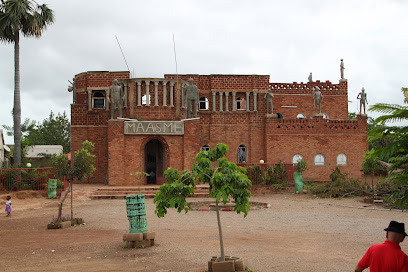
Église de Dapoya
Discover the Église de Dapoya in Ouagadougou: a blend of faith, art, and cultural heritage in the heart of Burkina Faso.
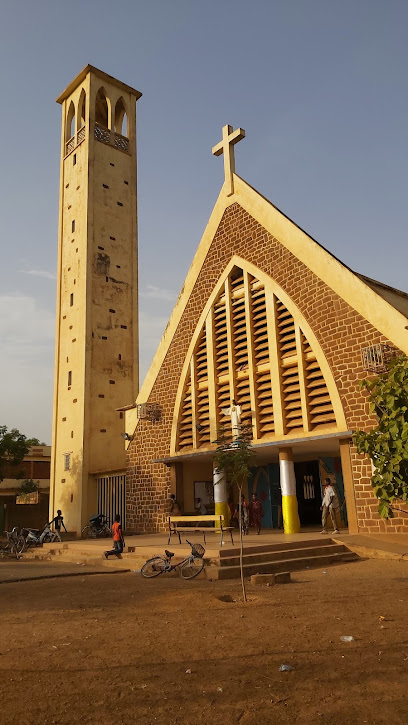
Sculptures de Laongo
Explore Sculptures de Laongo, an enchanting open-air museum in Burkina Faso showcasing stunning sculptures that embody the region's rich cultural heritage.
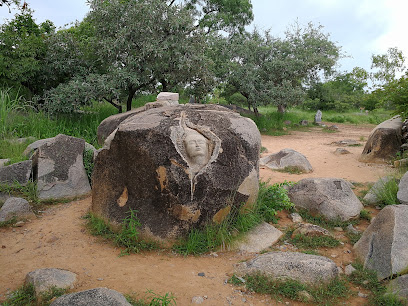
Parc urbain Bangr Weoogo
Discover the lush landscapes and vibrant wildlife at Parc Urbain Bangr Weoogo, a serene urban park in the heart of Ouagadougou, Burkina Faso.
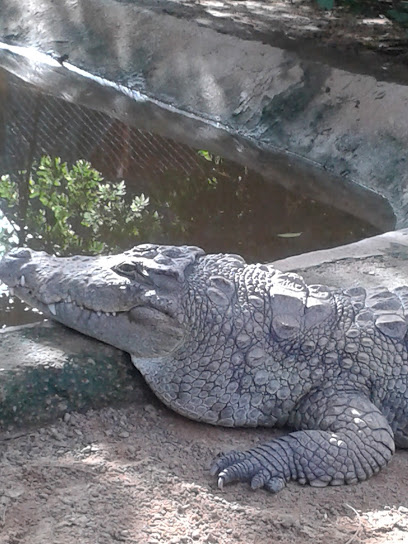
Musée Rayimi
Explore Burkina Faso's cultural heritage at Musée Rayimi in Koudougou, showcasing regional artifacts, art, and traditions.
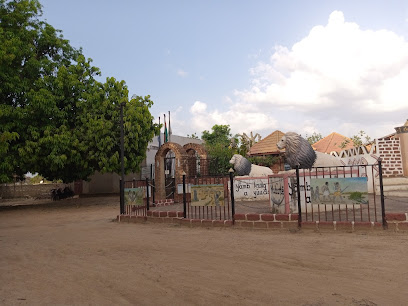
Ruins of Loropéni
Discover the enchanting Ruins of Loropéni, a UNESCO World Heritage site that reveals the rich history and architectural brilliance of an ancient West African civilization.
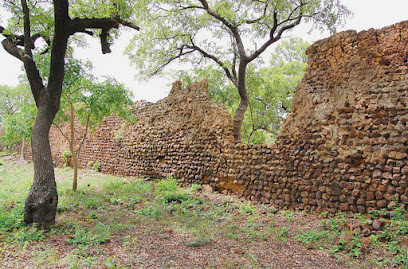
Domes de Fabedougou
Explore the ancient, sculpted rock formations of Domes de Fabedougou near Karfiguela, Burkina Faso – a natural wonder for hikers and photographers.
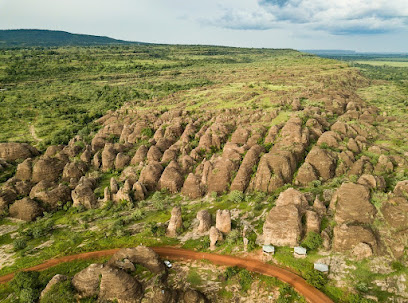
Unmissable attractions to see
Parc Bangr Weogo
Explore the lush landscapes and vibrant wildlife of Parc Bangr Weogo, a tranquil urban oasis in Ouagadougou, Burkina Faso.
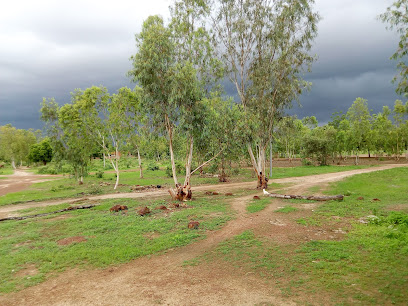
Maison du Peuple
Explore the heart of Ouagadougou at Maison du Peuple, a vibrant cultural center celebrating art and community in Burkina Faso.
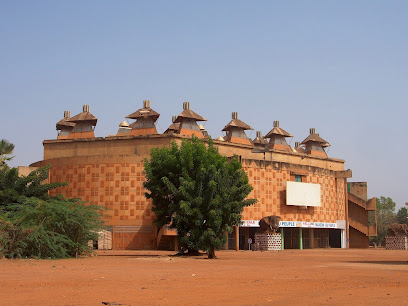
BIBI PARC
Experience the joy and excitement of BIBI PARC, Ouagadougou's top amusement park, offering thrilling rides and delightful attractions for all ages.
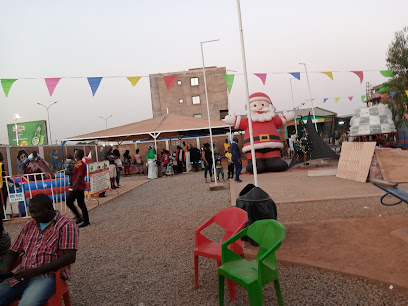
Maasmê Issouka - Palais Du Naaba D'Issouka
Explore the vibrant history and culture of Burkina Faso at Maasmêa Issouka - Palais Du Naaba D'Issouka, a remarkable local history museum.
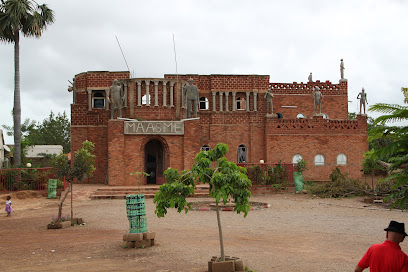
Sculptures de Laongo
Explore the captivating outdoor art gallery of Sculptures de Laongo, where nature and creativity unite to celebrate Burkinabé culture.
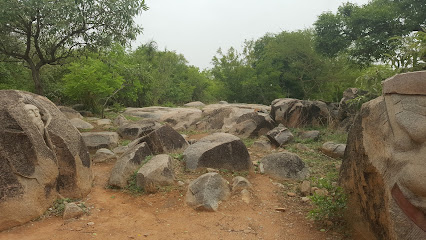
Parc urbain Bangr Weoogo
Escape the city bustle in Ouagadougou's green heart: Parc Urbain Bangr Weoogo, a blend of nature, culture, and history.
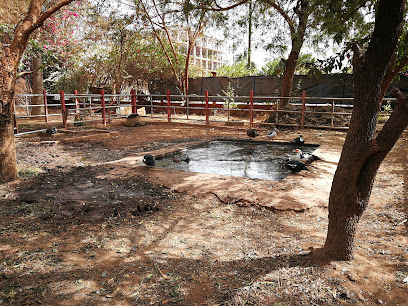
Musée Rayimi
Explore the artistic and historical treasures of Burkina Faso at the captivating Musée Rayimi in Koudougou.
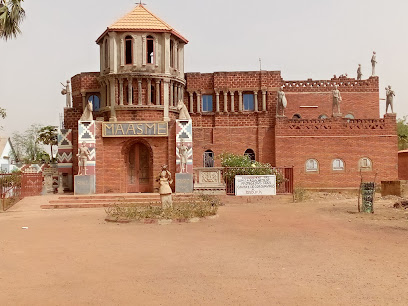
Essential places to dine
Maquis Oasis De Dedougou
Experience authentic Burkinabé cuisine at Maquis Oasis De Dedougou - where flavor meets culture in a welcoming atmosphere.
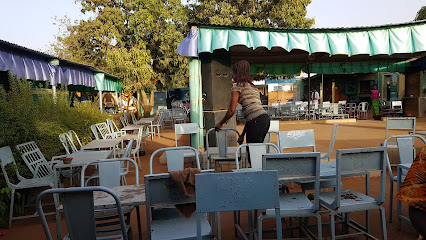
MAQUIS MILLENIUM
Experience authentic West African cuisine at Maquis Millenium - where tradition meets flavor in Dédougou.
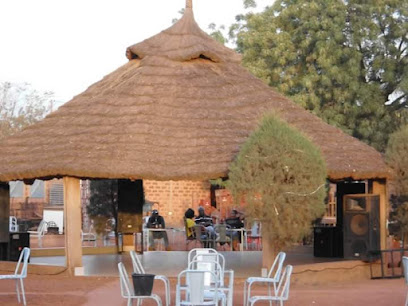
Restaurant LANAYA
Experience authentic Burkinabé cuisine at Restaurant LANAYA in Dedougou - where flavor meets culture in every dish.
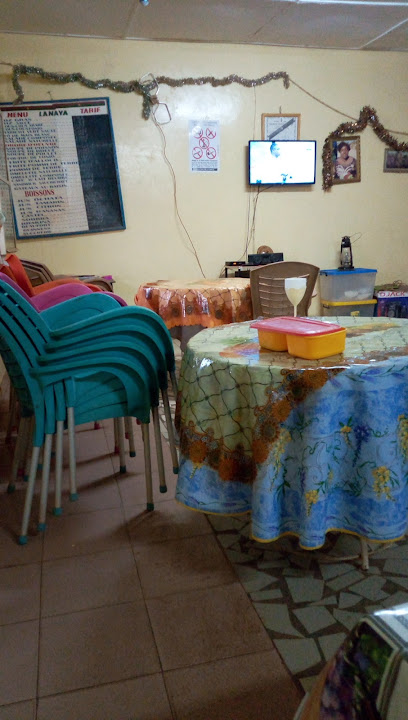
Restaurant Auberge Le Prestige
Experience authentic Burkinabé cuisine at Restaurant Auberge Le Prestige in Dédougou – where tradition meets taste.
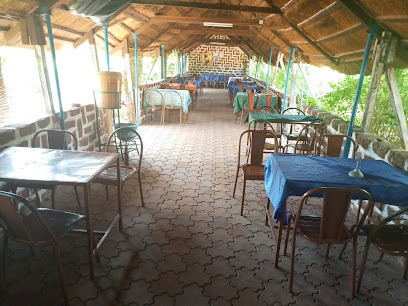
H-tag
Experience authentic Burkinabé cuisine at H-tag in Dedougou – where local flavors meet vibrant culture.
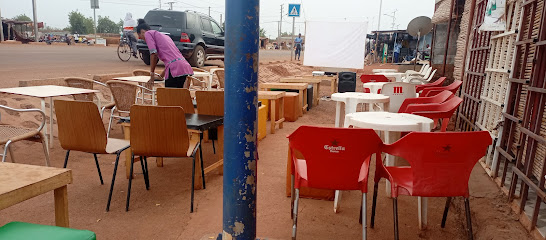
Café Restau LA TERRASSE DÉDOUGOU
Discover authentic Burkinabé flavors at Café Restau LA TERRASSE DÉDOUGOU, where local culture meets culinary delight.

RESTAURANT BADEYA
Discover the vibrant tastes of Burkina Faso at Restaurant Badeya - your family-friendly dining destination in Dédougou.
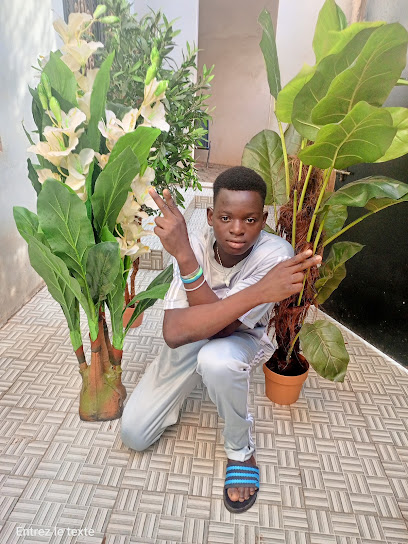
Le festin
Experience authentic Burkinabé flavors at Le Festin in Dedougou – where every meal is a celebration of local culinary traditions.
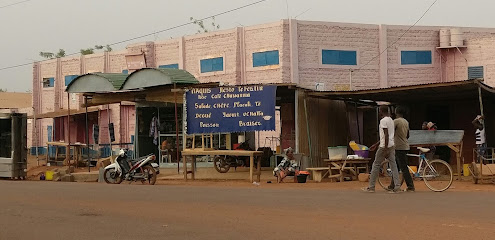
Copacabana de Dedougou
Experience the rich flavors of Burkinabé cuisine at Copacabana de Dedougou, where every meal tells a story.
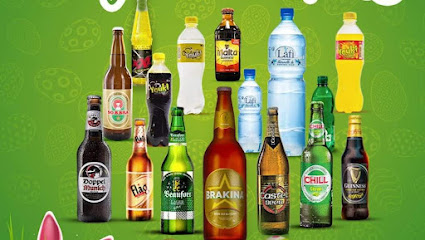
RÉPUBLIQUE Restaurant Maquis Bar
Discover authentic Burkinabé cuisine at RÉPUBLIQUE Restaurant Maquis Bar in Dedougou - a culinary experience filled with local flavors.

Restaurant-La bonne Entente
Discover authentic Burkinabe cuisine at La Bonne Entente in Dedougou - where tradition meets flavor in every dish.

Restaurant la Grace
Experience authentic Burkinabé cuisine at Restaurant la Grace in Dédougou - where tradition meets taste.
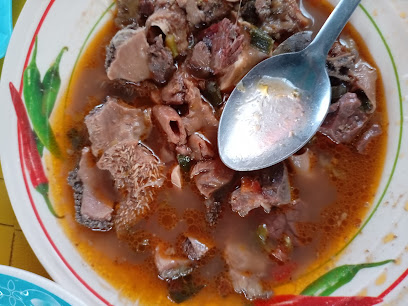
Matata
Discover the rich flavors of Burkina Faso at Matata in Dedougou - where tradition meets taste.

cafe snack resto Le Nakibur
Discover authentic Burkinabé cuisine at Café Snack Resto Le Nakibur in Dédougou - where local flavors meet warm hospitality.

Maquit la conquête
Savor authentic African cuisine at Maquit la conquête in Dédougou – where every dish is a celebration of culture and flavor.

Markets, malls and hidden boutiques
Gare Routiere De Dedougou
Explore the vibrant marketplace of Gare Routiere De Dedougou - where local culture, shopping, and delicious food come together in a bustling atmosphere.
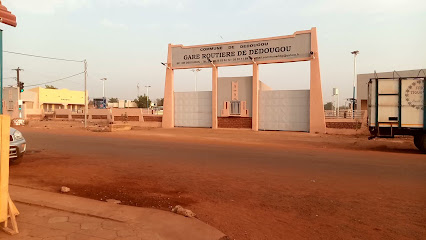
ECOMOF DEDOUGOU
Explore ECOMOF DEDOUGOU, a lively shopping mall in Dedougou, where local culture and modern retail blend seamlessly for an unforgettable experience.
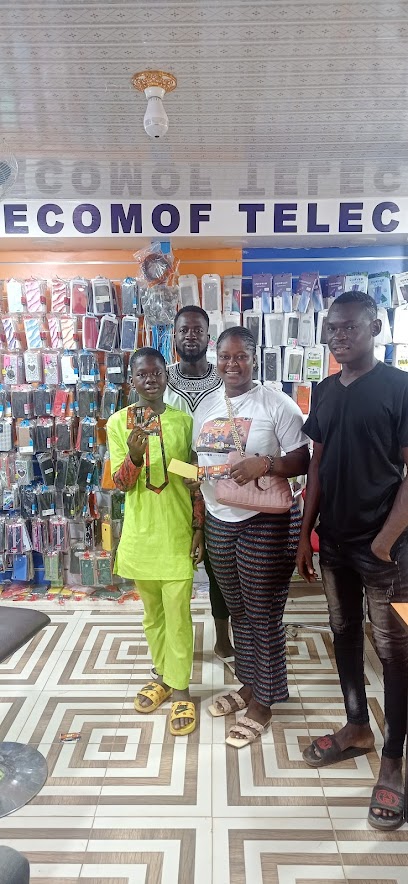
ECOTAF DDG
Experience the vibrant culture and shopping delights at Ecotaf DDG in Dédougou, Burkina Faso.
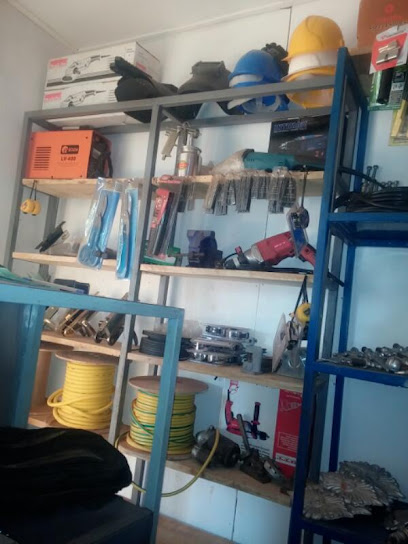
Maison du Sesame El SHADDAÏ-SARL
Discover local crafts and authentic Burkinabé cuisine at Maison du Sesame El SHADDAÏ-SARL, the vibrant shopping mall in Dedougou.
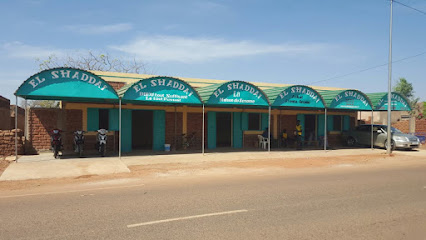
POINT DE VENTE YAMALUBE BY CFAO CHEZ RAMDE HAROUNA
Explore Point de Vente Yamalube, a vibrant shopping mall in Dedougou, offering a unique blend of local culture and diverse products.
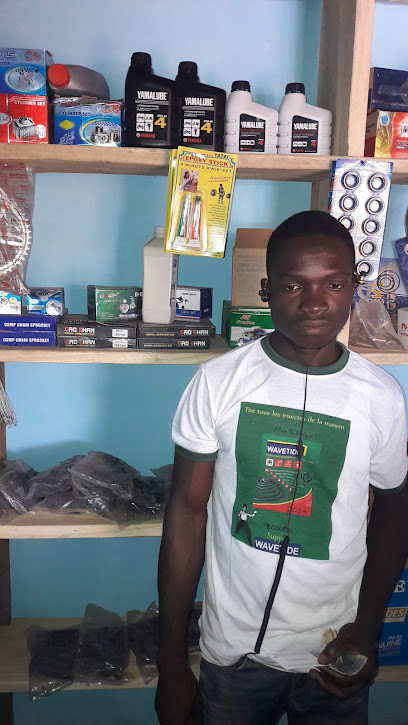
Nankosem Dedougou
Explore Nankosem Dedougou, a vibrant shopping mall in Dédougou that blends local culture and commerce in a colorful marketplace.
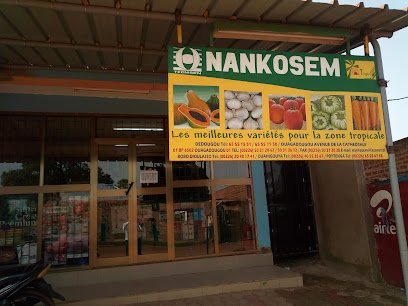
ETKF DEDOUGOU
Discover the charm of Dedougou at ETKF DEDOUGOU, a bustling shopping mall offering local crafts, authentic cuisine, and a vibrant cultural experience.

Librairie De France
Discover local culture and unique crafts at Librairie De France, a vibrant shopping destination in Dédougou's Grand Marché.
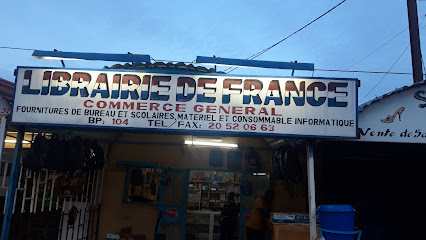
Badema
Discover the vibrant atmosphere of Badema Shopping Mall in Dedougou, featuring local crafts, diverse shops, and a taste of Burkinabé culture.
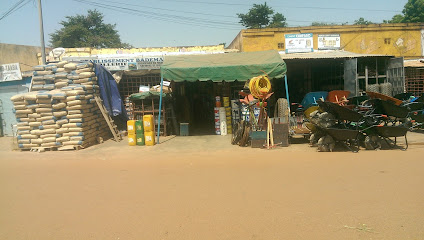
YAYA BOUTIQUE DÉDOUGOU
Discover YAYA Boutique Dédougou, your ultimate destination for quality electronics and exceptional tech service in Burkina Faso.

Établissement Zida Moussa et Frère (EZIMOF)
Explore a vibrant shopping haven at Établissement Zida Moussa et Frère, where local culture and commerce meet in Dédougou, Burkina Faso.
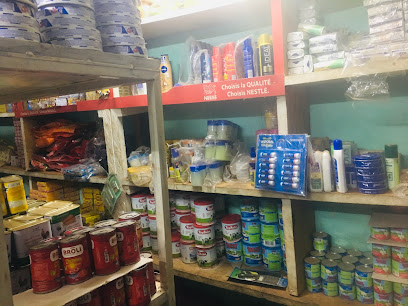
POINT DE VENTE YAMALUBE BY CFAO CHEZ BOLY IDRISSA
Discover a unique shopping experience at Yamalube by CFAO in Dedougou, offering local crafts and everyday essentials for all visitors.
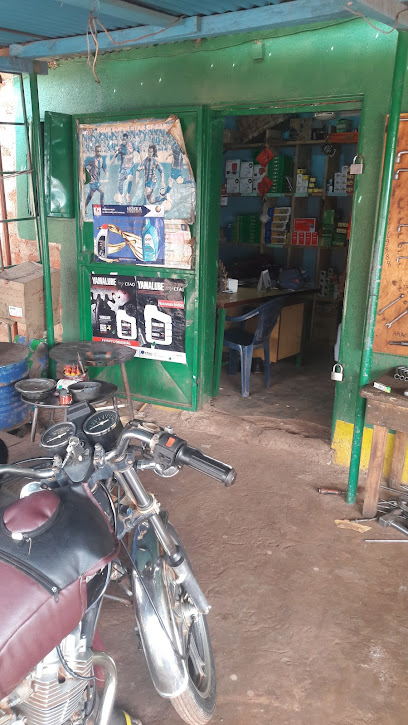
Dépôt babali dedougou
Discover the essence of Dedougou at Dépôt Babali, where local culture and unique crafts await your exploration.
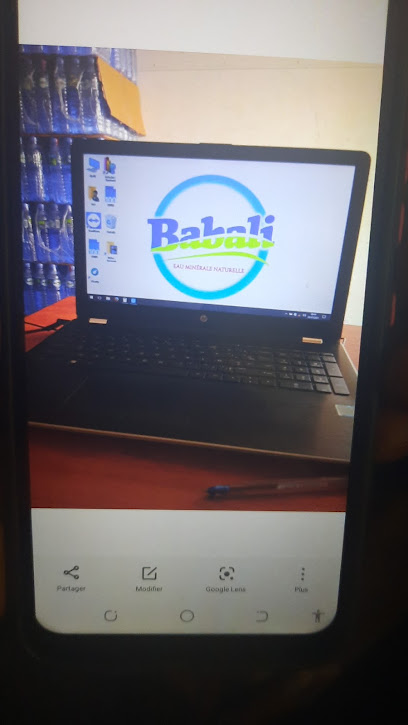
REINE COUTURE MIXTE
Reine Couture Mixte: Discover the vibrant world of Burkinabe textiles and bespoke tailoring in Dedougou.
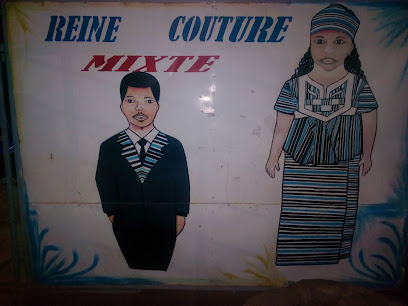
BokoumMarcket
Explore Bokoum Market in Dedougou for a vibrant taste of Burkinabé culture, local produce, and unique artisanal crafts.
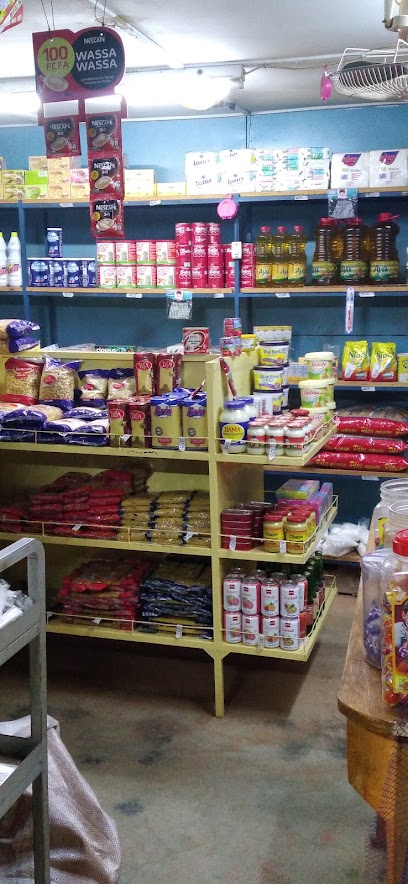
Essential bars & hidden hideouts
La Consolatrice
Discover La Consolatrice, a vibrant bar in Dédougou, where you can unwind with refreshing drinks and immerse yourself in the local culture.
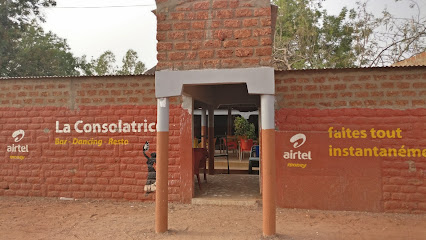
Triangle d'or
Discover the vibrant nightlife at Triangle d'or in Dédougou, where local culture meets a lively bar atmosphere for an unforgettable experience.
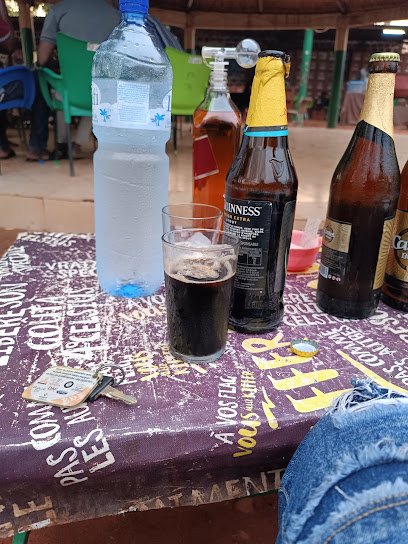
Bar Insomnia
Discover Bar Insomnia, a vibrant bar in Dedougou offering a laid-back atmosphere and affordable local drinks, perfect for socializing and relaxing.
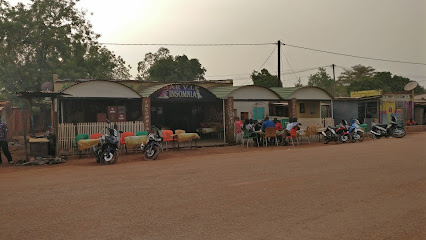
Guinguette Plus
Discover the vibrant culture of Dédougou at Guinguette Plus, a lively bar offering a perfect blend of local charm and refreshing drinks.
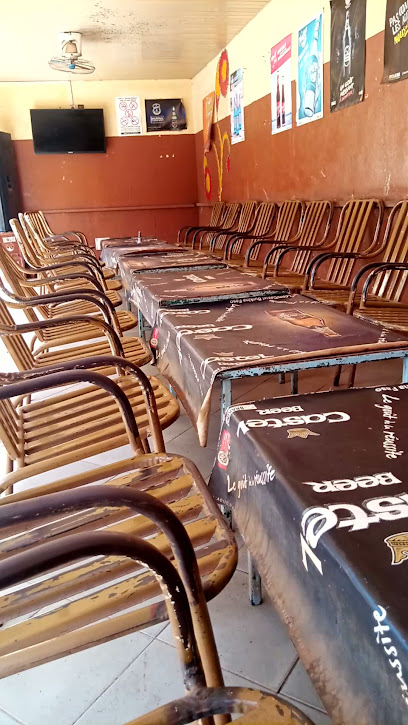
TANUXA PLUS
Experience the vibrant nightlife of Dédougou at TANUXA PLUS, a lively bar offering a taste of local culture and delicious drinks.
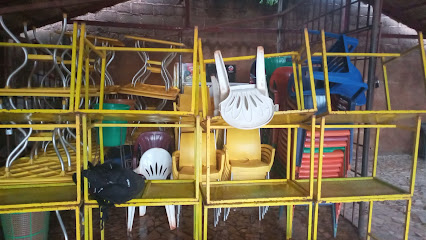
Groupe Arc_en_ciel
Experience the vibrant nightlife of Dedougou at Groupe Arc_en_ciel, where local flavors and lively entertainment come together.
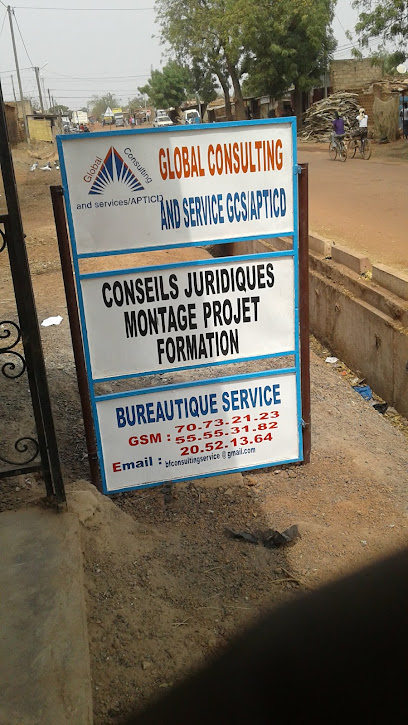
Café Cappuccino
Discover the relaxed charm of Café Cappuccino in Dedougou, where local flavors and a friendly atmosphere await every visitor.

COPA III
Discover the vibrant nightlife at COPA III, a lively bar in Dédougou offering local drinks and a friendly atmosphere for all.
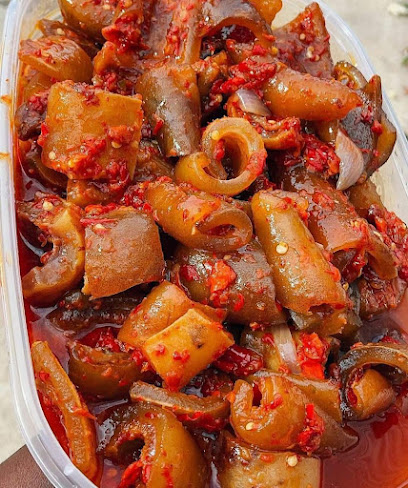
Maquis le Choco fresh
Discover the lively ambiance and local flavors at Maquis le Choco Fresh in Dedougou, a must-visit bar for an authentic experience.
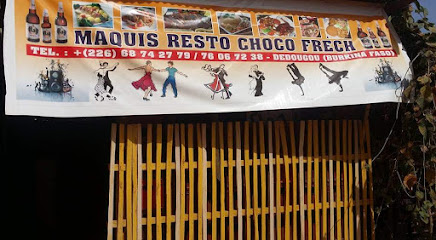
Etoile du nord
Experience the vibrant nightlife of Dedougou at Etoile du nord, a local bar offering a taste of authentic Burkinabé culture and refreshing drinks.

La Guinguette plus
Discover the vibrant atmosphere of La Guinguette Plus in Dedougou, a perfect bar for tourists seeking local drinks and entertainment.

Milles manguiers de Deux-doux-goûts
Experience the charm of Dedougou at Milles Manguiers de Deux-Doux-Goûts, a serene bar surrounded by lush mango trees, perfect for relaxation and local flavors.
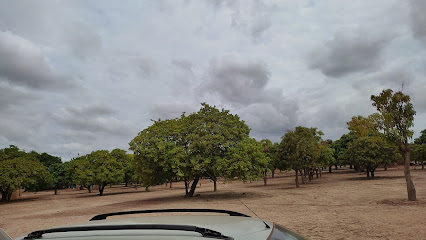
Maquis restau ZOODO
Discover the vibrant local culture at Maquis restau ZOODO, a lively bar in Dédougou offering refreshing drinks and a welcoming atmosphere.

Bar Vip Guiguette Plus
Experience the vibrant social scene at Bar Vip Guiguette Plus in Dédougou, where local culture meets a warm and inviting atmosphere.

Local Phrases
-
- HelloN yibeogo
[en yi-bay-o-go] - GoodbyeSara karama
[sa-ra ka-ra-ma] - YesEe
[ee] - NoOu
[oo] - Please/You're welcomeZakaore
[za-kao-re] - Thank youA kèere
[a ke-ere] - Excuse me/SorrySan kèere
[san ke-ere] - How are you?N bala kèere?
[en ba-la ke-ere?] - Fine. And you?A kèere. O bala kèere?
[a ke-ere. o ba-la ke-ere?] - Do you speak English?N be inglèsi n bala?
[en be in-glay-see en ba-la?] - I don't understandA ma fèere
[a ma fe-ere]
- HelloN yibeogo
-
- I'd like to see the menu, pleaseM n b kèrè n bègè, zakaore
[m en ba ke-re en bay-gay, za-kao-re] - I don't eat meatA ma n ba fara
[a ma en ba fa-ra] - Cheers!Ariyari
[a-ree-a-ree] - I would like to pay, pleaseM n b kèrè fèere, zakaore
[m en ba ke-re fe-ere, za-kao-re]
- I'd like to see the menu, pleaseM n b kèrè n bègè, zakaore
-
- Help!Sègè
[se-ge] - Go away!Ka n bè
[ka en ba] - Call the Police!N b kèrè polisè, zakaore
[en ba ke-re po-li-say, za-kao-re] - Call a doctor!N b kèrè doktorè, zakaore
[en ba ke-re dok-to-re, za-kao-re] - I'm lostA n ka fèere
[a en ka fe-ere] - I'm illA n ka balè
[a en ka ba-le]
- Help!Sègè
-
- I'd like to buy...M n b kèrè n b kiri...
[m en ba ke-re en ba ke-ree...] - I'm just lookingA n balè
[a en ba-le] - How much is it?A ka n bala?
[a ka en ba-la?] - That's too expensiveI ka kèere
[ee ka ke-ere] - Can you lower the price?N b ka baara kaara?
[en ba ka ba-ra ka-ra?]
- I'd like to buy...M n b kèrè n b kiri...
-
- What time is it?A ka n bala?
[a ka en ba-la?] - It's one o'clockN b n bala
[en ba en ba-la] - Half past (10)N b n bala, sègè
[en ba en ba-la, se-ge] - MorningZun
[zoon] - AfternoonZunkan
[zoon-kan] - EveningYaara
[ya-ra] - YesterdaySina
[see-na] - TodayN b yiri
[en ba yi-ree] - TomorrowN b zaara
[en ba za-ra] - 1N b
[en ba] - 2Bi
[bee] - 3Taa
[taa] - 4Nii
[nee] - 5Tɔɔ
[toh] - 6Jɔɔ
[joh] - 7Sɔɔ
[soh] - 8Naa
[naa] - 9Kuɔ
[kwoh] - 10Nya
[nya]
- What time is it?A ka n bala?
-
- Where's a/the...?N b n bala...?
[en ba en ba-la...?] - What's the address?A ka n bala n bègè?
[a ka en ba-la en bay-gay?] - Can you show me (on the map)?N b ka bè n bègè (sègè)?
[en ba ka be en bay-gay (se-ge)?] - When's the next (bus)?A ka n bala n sègè (kèrè)?
[a ka en ba-la en se-ge (ke-re)?] - A ticket (to ....)N b n bala (fè ...)?
[en ba en ba-la (fe ...)?]
- Where's a/the...?N b n bala...?
History of Dédougou
-
Long before Dédougou became an established town, the region was inhabited by various ethnic groups, including the Marka and the Bwaba. These groups lived relatively isolated lives, practicing traditional agriculture and maintaining their distinct cultural practices. The early settlements were characterized by their unique adobe structures and intricate social systems.
-
In the 15th century, the Mossi people began to expand their influence across the region. The Mossi Kingdoms, known for their military prowess and sophisticated political systems, played a significant role in shaping the history of Dédougou. Although Dédougou itself was not the seat of any major Mossi kingdom, the town was influenced by the political and cultural currents emanating from these powerful entities.
-
Dédougou, like much of Burkina Faso, came under French colonial rule in the late 19th century. The French implemented new administrative structures and introduced their language and education system. During this period, Dédougou grew as a regional administrative center, which led to the development of infrastructure such as roads and public buildings. The town became a melting pot of cultures as people from various parts of the colony moved there.
-
Burkina Faso gained independence from France in 1960, and Dédougou began to modernize rapidly. The post-independence era saw the construction of schools, healthcare facilities, and markets. Dédougou also became known for its vibrant cultural scene, hosting festivals and events that celebrated the rich heritage of its diverse population. The town's economy diversified, with agriculture remaining a key sector while trade and small industries began to flourish.
-
One of the most notable cultural events in Dédougou is the biennial Festival International des Masques et des Arts (FESTIMA). This festival celebrates the traditional masks and dances of the region's ethnic groups, drawing visitors from around the world. FESTIMA not only serves as a cultural showcase but also as a means of preserving and promoting the intangible heritage of Burkina Faso. The festival features performances, workshops, and exhibitions, highlighting the artistic and spiritual significance of masks in local cultures.
-
Today, Dédougou is a bustling town that balances its rich historical legacy with modern development. The town's markets are vibrant hubs of activity, offering a variety of goods from fresh produce to handmade crafts. Educational institutions and healthcare facilities have continued to improve, contributing to the well-being of its residents. Dédougou remains a key cultural and economic center in Burkina Faso, where tradition and progress coexist harmoniously.
Dédougou Essentials
-
Dédougou is located in the Boucle du Mouhoun Region of Burkina Faso. The nearest international airport is Ouagadougou International Airport, approximately 230 kilometers away. From Ouagadougou, you can take a bus, taxi, or hire a private car to Dédougou. The journey typically takes around 4 to 5 hours by road. Buses are available from the Ouagadougou bus station, operated by several local companies.
-
Within Dédougou, transportation options include taxis, moto-taxis (motorcycle taxis), and bicycle rentals. Taxis are relatively inexpensive and can be hailed on the street or arranged through your hotel. Moto-taxis are a popular and affordable way to get around. For a more immersive experience, consider renting a bicycle to explore the town at your own pace.
-
The official currency in Burkina Faso is the West African CFA franc (XOF). Credit cards are accepted in some hotels, restaurants, and larger shops, but it is advisable to carry cash, especially in smaller establishments and rural areas. ATMs are available in Dédougou, but it is wise to withdraw sufficient cash in Ouagadougou before traveling to ensure you have enough funds.
-
Dédougou is generally a safe destination for tourists, but it is important to take standard precautions. Avoid walking alone at night in unfamiliar areas and keep an eye on your belongings in crowded places. Areas with higher crime rates targeting tourists are not specifically identified, but it is always best to stay vigilant and aware of your surroundings.
-
In case of emergency, dial 17 for police assistance or 18 for medical emergencies. The local police station and medical facilities are available in Dédougou. It is recommended to have travel insurance that covers medical emergencies. For minor health issues, there are pharmacies in the town where you can purchase over-the-counter medications.
-
Fashion: Do dress modestly, especially when visiting religious sites. Avoid wearing revealing clothing. Religion: Do respect local customs and traditions. Always be respectful and avoid interrupting religious practices. Public Transport: Do be respectful and give up your seat to elderly passengers. Don’t eat or drink on public transport. Greetings: Do greet people with a handshake and a friendly smile. It is polite to ask about their well-being before starting a conversation. Eating & Drinking: Do try local delicacies and accept food offerings graciously. Don’t refuse hospitality, as it is considered impolite.
-
To experience Dédougou like a local, visit the local markets where you can buy fresh produce and traditional Burkinabe goods. Engage with locals, as they are often friendly and willing to share stories about the town's history and culture. Don’t miss the annual Dédougou Mask Festival, which showcases traditional masks and dances from various ethnic groups in the region. For a unique experience, take a stroll along the banks of the Mouhoun River and enjoy the scenic views.
Trending Landmark in Dédougou
-
Parc Bangr Weogo
-
Maison du Peuple
-
Ouagadougou Thomas Sankara International Airport
-
Ouagadougou Cathedral
-
Monument of National Heroes
-
KB et frères
-
BIBI PARC
-
Faso Parc
-
Maasmê Issouka - Palais Du Naaba D'Issouka
-
Église de Dapoya
-
Sculptures de Laongo
-
Parc urbain Bangr Weoogo
-
Musée Rayimi
-
Ruins of Loropéni
-
Domes de Fabedougou
Nearby Cities to Dédougou
-
Things To Do in Koudougou
-
Things To Do in Ouahigouya
-
Things To Do in Bobo-Dioulasso
-
Things To Do in Ouagadougou
-
Things To Do in Ziniaré
-
Things To Do in Wa
-
Things To Do in Tamale
-
Things To Do in Bamako
-
Things To Do in Sunyani
-
Things To Do in Niamey
-
Things To Do in Yamoussoukro
-
Things To Do in Kumasi
-
Things To Do in Daloa
-
Things To Do in Atakpamé
-
Things To Do in Kpalimé





